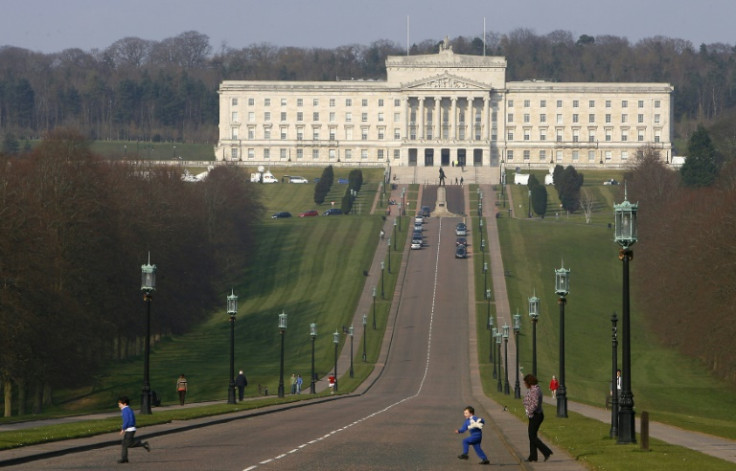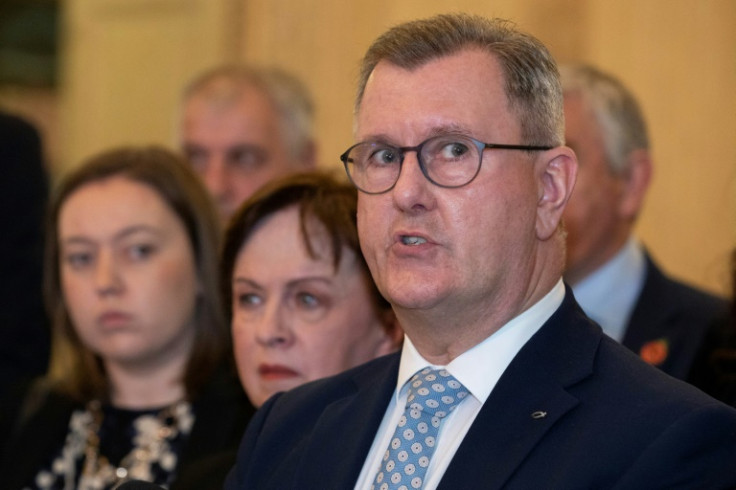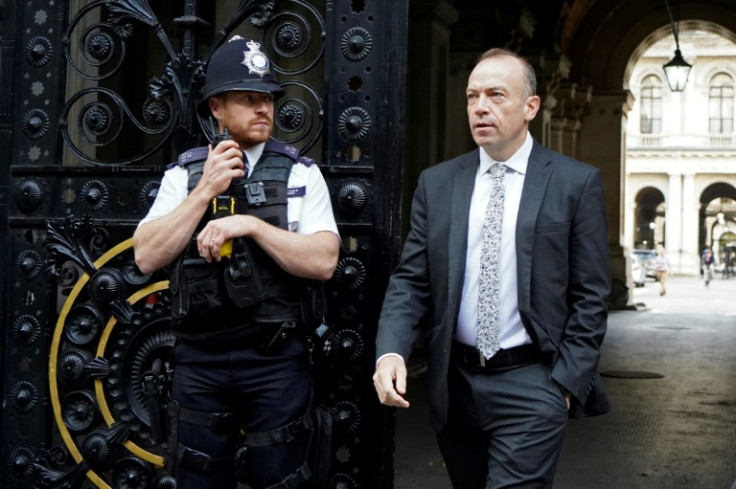UK govt expected to call N. Ireland poll after deadline expires
The British government was on Friday expected to call the second election this year in Northern Ireland after UK and regional lawmakers failed to resolve a standoff over post-Brexit trade rules.

The British government was on Friday expected to call the second election this year in Northern Ireland after UK and regional lawmakers failed to resolve a standoff over post-Brexit trade rules.
A deadline to resume devolved government at the Stormont assembly passed at midnight, prompting Northern Ireland minister Chris Heaton-Harris to tweet that he was "extremely disappointed".
"Today Stormont could be taking decisions to ease the challenges people face. Instead, the legal duty to act falls to me as secretary of state... I will be providing an update on this," he tweeted.
British environment minister Therese Coffey meanwhile said the failure to end the stalemate meant an election would now "definitely happen".

Jeffrey Donaldson, leader of the pro-UK Democratic Unionist Party, defended his party's blocking of the restoration of power-sharing, part of its protest against the so-called Northern Ireland Protocol governing post-Brexit trade rules.
He said his party could not "nominate ministers to an executive that is required to impose a protocol that harms our economy, harms our people and prevents us getting access to medicines and other vital supplies from the rest of the United Kingdom".
Donaldson added he stood "ready to form an executive as soon as that solution is found" but that his party had been waiting for nearly three years.
"We need a solution," he stressed.
The expiry of the legal cut-off point for the creation of a joint executive between pro-Ireland nationalists and pro-UK unionists came after the province's parties made a last-ditch attempt to restart the devolved assembly.
In an argumentative session on Thursday, lawmakers briefly reconvened for the first time in months for a special sitting but failed to elect a speaker, so no new government could be created.
The DUP has boycotted the assembly since February, calling for the protocol to be overhauled or scrapped entirely.
New British Prime Minister Rishi Sunak had implored the parties to "get back to Stormont", arguing that people in Northern Ireland "deserve a fully functioning and locally elected executive", his official spokesman said Thursday.
Heaton-Harris, an arch-Eurosceptic only appointed to his role on September 6, has insisted that if the UK government deadline expired Friday he would not hesitate to call an election, with December 15 the expected date for the new poll.
Northern Ireland has now been without a functioning government for nine months, with pro-Irish party Sinn Fein winning a historic first election in May which is seen as further complicating the political situation.
Sinn Fein leader Michelle O'Neill -- who was set to become first minister if the executive was restarted -- condemned the DUP's "perpetual standoff with the public, the majority of whom they do not speak for or indeed represent".
The DUP insists the protocol -- agreed by London and Brussels as part of Britain's 2019 Brexit deal -- must be addressed first.
It claims the pact, which effectively keeps Northern Ireland in the European Union's single market and customs union, weakens the province's place within the United Kingdom.
Many unionists also argue it is threatening the delicate balance of peace between the pro-Irish nationalist community and those in favour of continued union with Britain.
The protocol was agreed to avoid the return of a hard land border with the Republic of Ireland, which remains an EU member.
Eliminating that hard border was a key strand of the 1998 Good Friday Agreement, which ended three decades of sectarian violence in Northern Ireland.
Britain's Conservative government, which has had three prime ministers in two months, has urged Brussels to agree to wholesale revisions of the protocol. London is also in the midst of passing contentious legislation to override it unilaterally.
That has sparked fears of a trade war and worsening relations with Europe when the economic landscape is already gloomy.

© Copyright AFP 2025. All rights reserved.






















